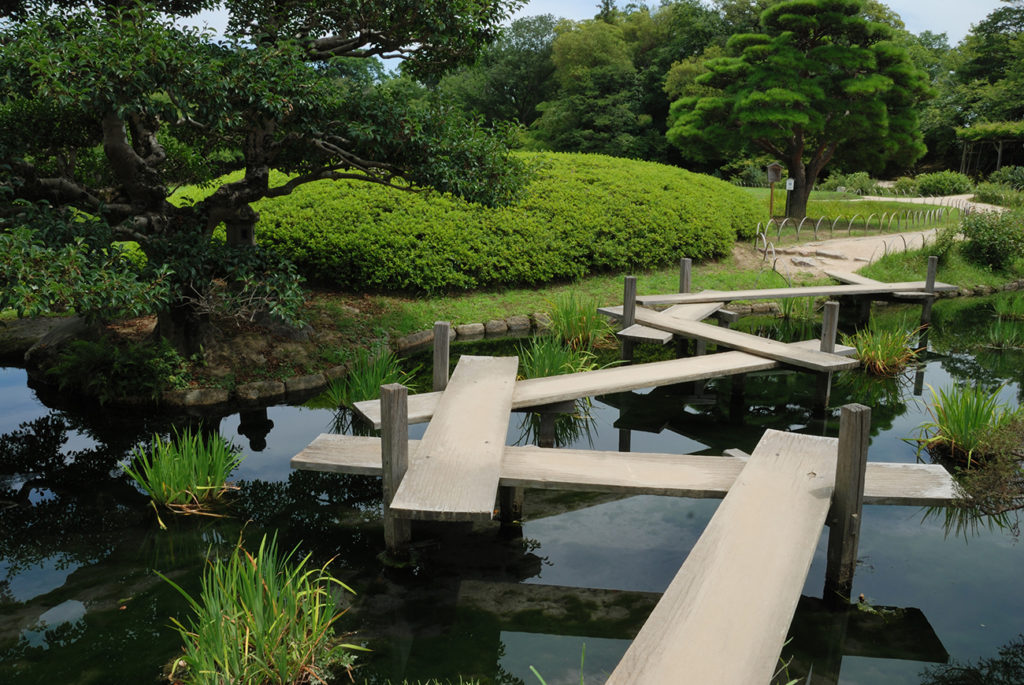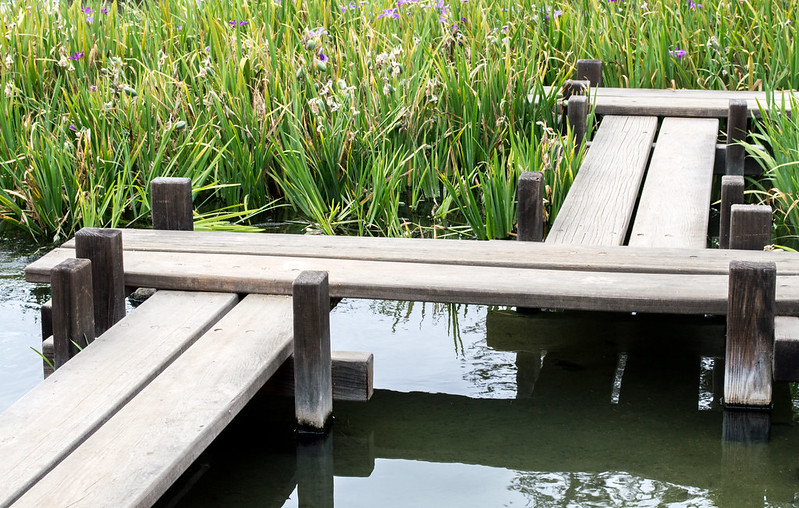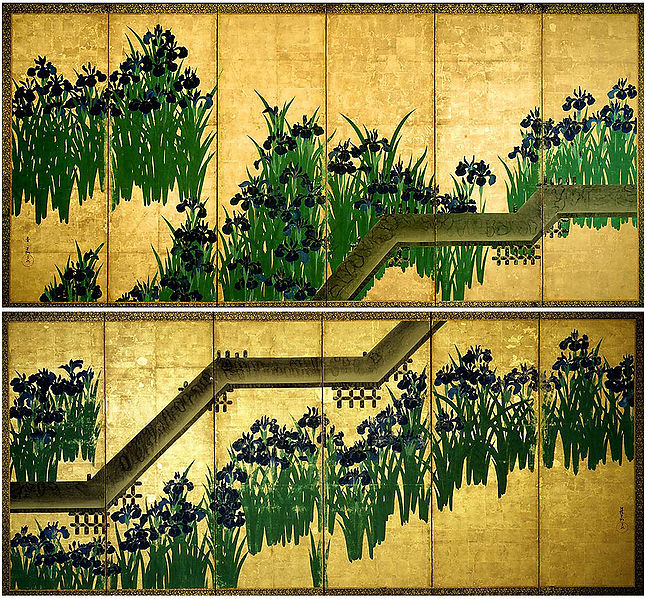
Yatsuhashi: The Eight–Planked Bridge of Japanese Gardens
Some Japanese gardens have an intriguing type of bridge made from eight narrow wooden planks forming a zigzag pattern. These unique bridges are called yatsuhashi, meaning “eight bridges.” They are commonly used to cross shallow marshes or ponds with beautiful iris flowers. The yatsuhashi bridge’s name comes from the Heian period collection of poems and narratives, or an Uta monogatari (literally “poem-tale”), The Tales of Ise.
The Tales of Ise is a collection of 125 sections combining poems and prose mostly totaling 209 poems. The exact date it was written is not clear. The main character is suggested to be Ariwara no Narihira (825-880). Some 30 poems from The Tales of Ise are featured in the Kokin Wakashū (Collection of Japanese Poems of Ancient and Modern Times).
A yatsuhashi bridge.
A part in The Tales of Ise speaks of a young aristocrat who chances upon a place called Yatsuhashi (Eight Bridges) where a river divides into eight different channels, each spanned by a bridge. The central character of the Tales of Ise, Ariwara no Narihira, is deeply enthralled by the beautiful irises close to the bridge. He then composes a simple poem of five lines, each line beginning with the Japanese word for iris. This immortalized the association of irises with yatsuhashi bridges.
The melancholy poem echoes his deep longing for his wife whom he has left behind in the capital:
から衣 きつゝなれにし つましあれば はるばるきぬる たびをしぞ思
Karagoromo / kitsutsu narenishi / tsuma shi areba / harubaru kinuru / tabi o shi zo omou
I have a beloved wife / familiar as the skirt / of a well-worn robe / and so this distant journeying / fills my heart with grief.

